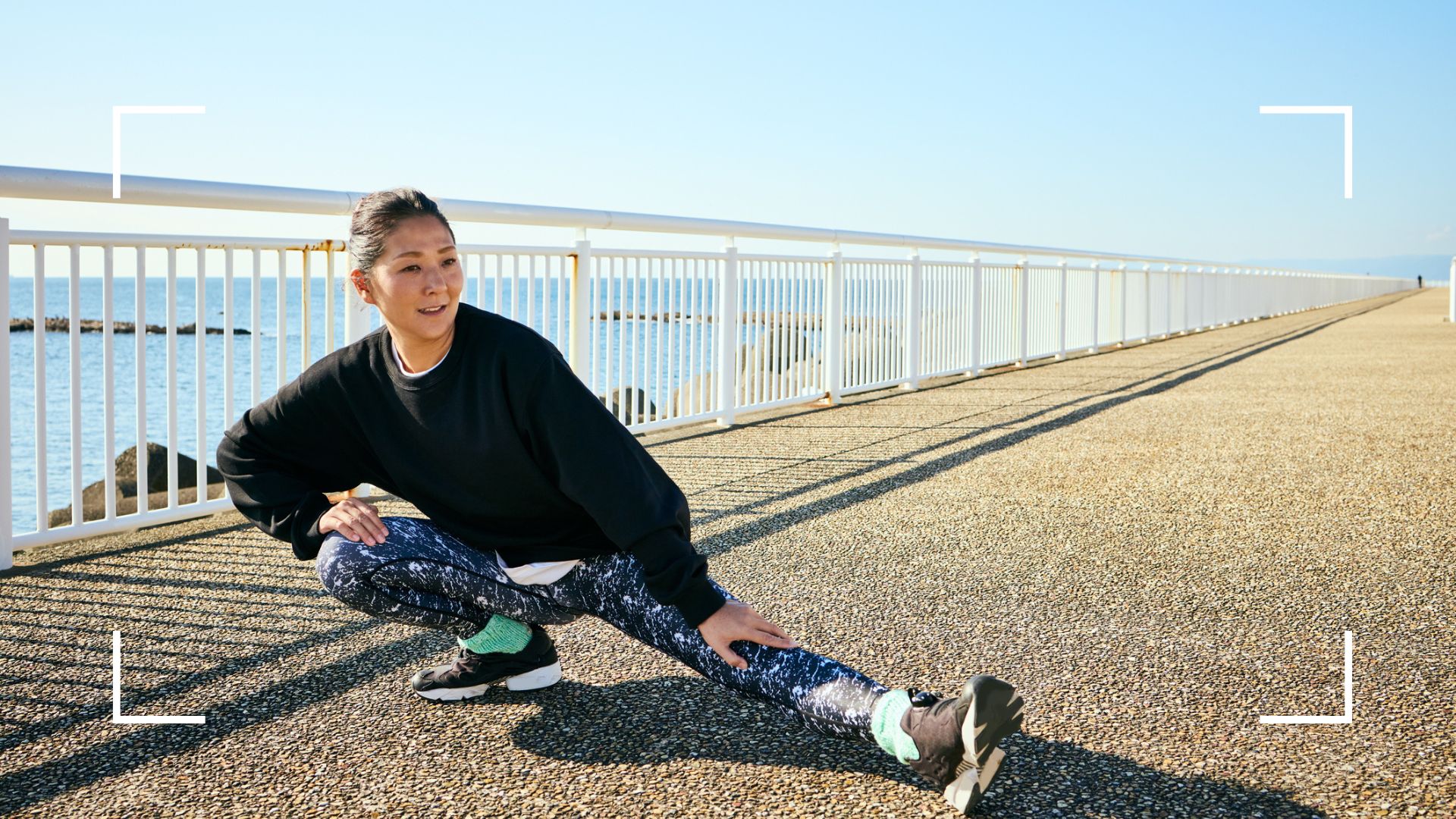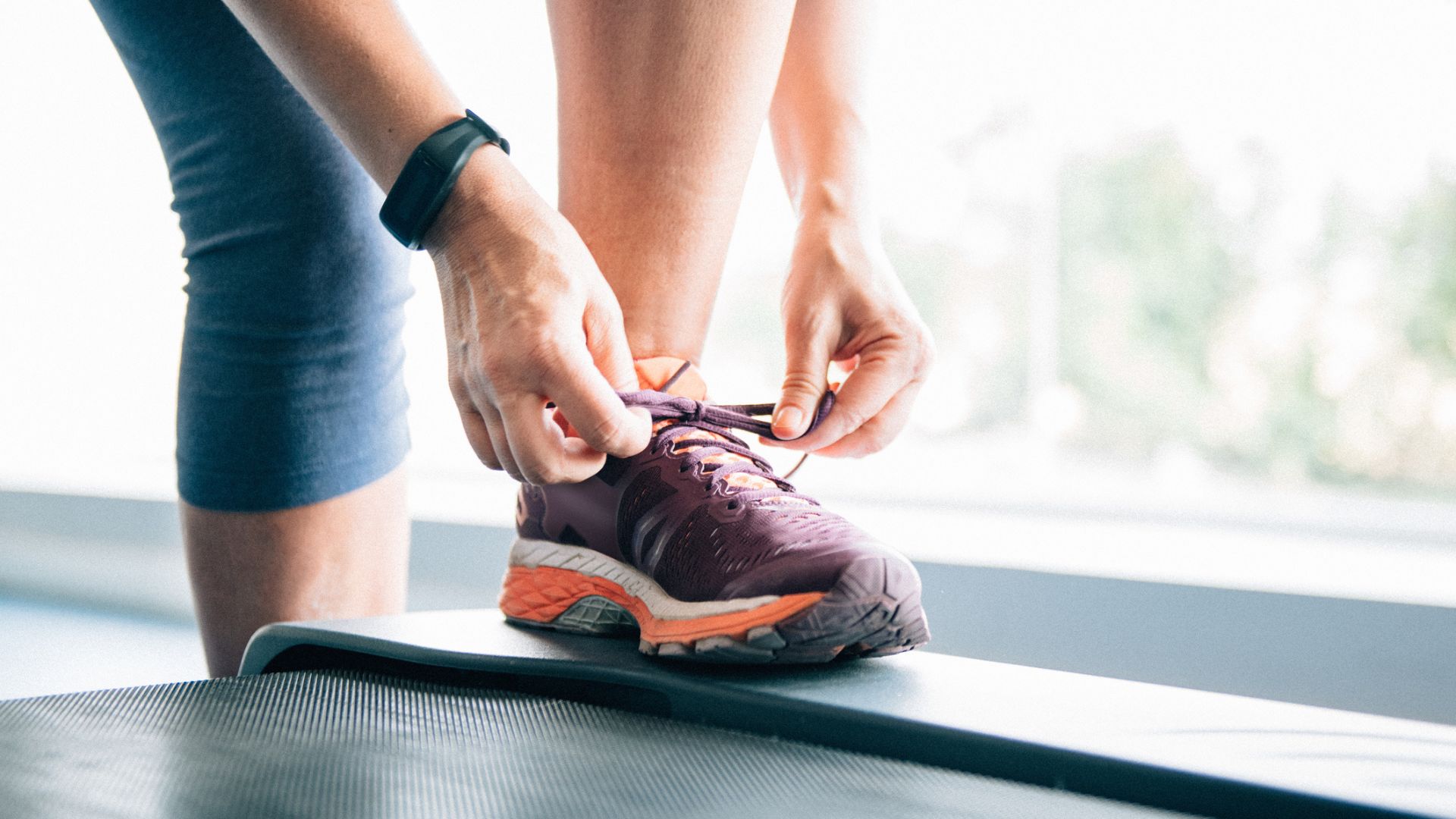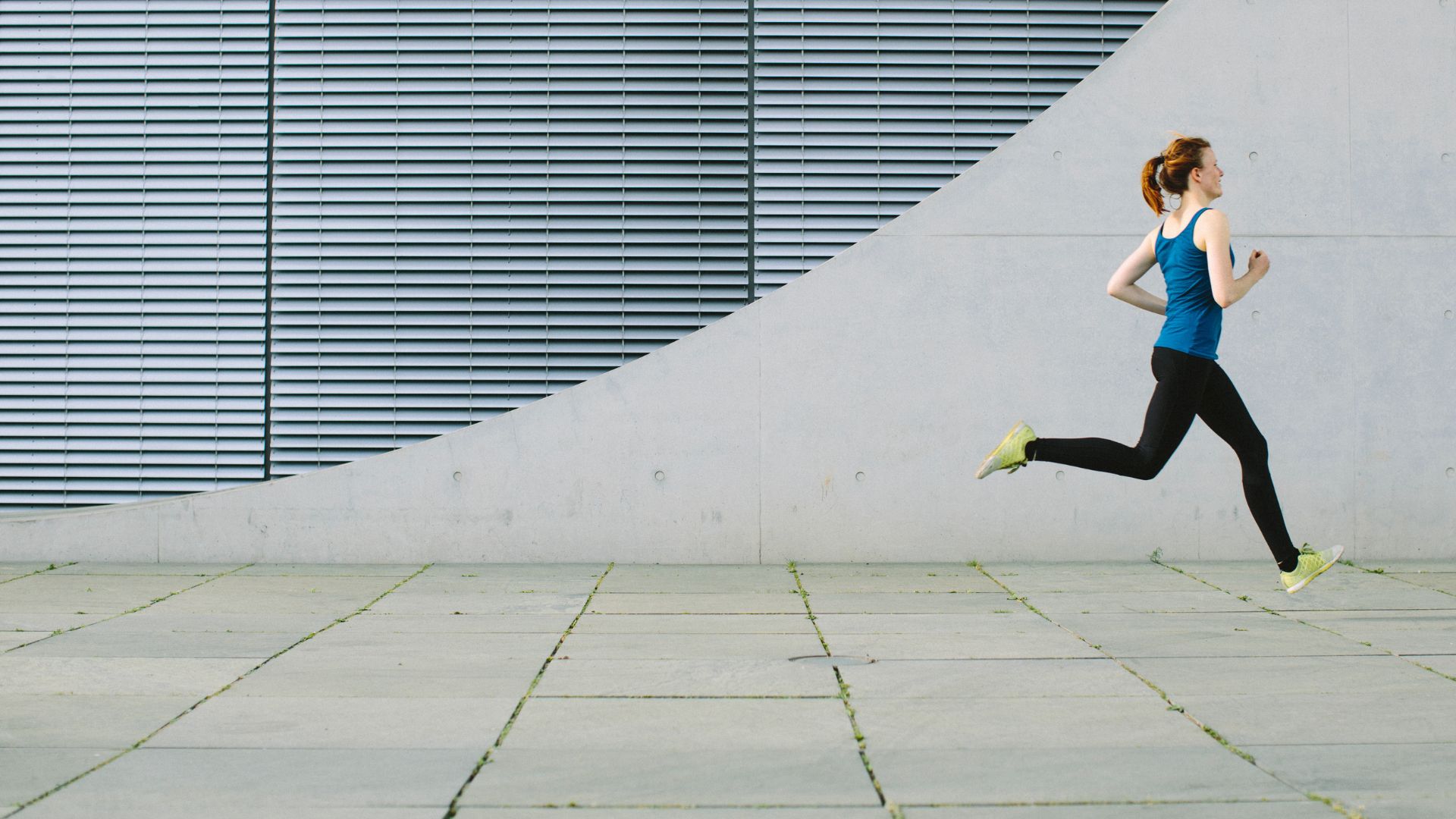Experts reveal how to calculate your fitness age - and why it matters
Your fitness age can reveal how old your body really is


Fitness age is a relatively new concept, having only been developed in the last 20 years to help people determine how fit and healthy they truly are. While anyone can count the candles on a birthday cake, this measurement is all about looking at body age and cardiovascular health.
There are several important systems we need to keep in check to stay healthy and make sure we move through life stabilizing - if not lowering - our risk of diseases. One of them is the cardiovascular system, which is made up of the heart, veins, and capillaries. If we keep this healthy, the risk goes right down.
But what actually is fitness age and how do you calculate it? You may have heard of the biological age calculator, and this one works in a similar way. Here, we speak to two leading personal trainers and experts to reveal why and how fitness age matters.
What is fitness age?
Fitness age is a prediction of how old your body is compared to your real age. It's mainly measured by VO2 max, which is essentially how much oxygen a person can consume and use during exercise, explains personal trainer and fitness specialist Karina Blackwood. "This is a great indicator of aerobic fitness level," she explains, and in turn, cardiovascular health. As the cardiovascular system carries oxygen and nutrients around the body, we need it to be in good working order to stay healthy and live longer.
The concept of fitness age and the calculation to work it out was created by Ulrik Wisløff, Ph.D., and others, at The K. G. Jebsen Center of Exercise in Medicine at the Norwegian University of Science and Technology as a simple way to test cardiovascular fitness. The traditional lab-based options, which were previously the only ones available, were "time-consuming and involve[ed] costly test produces," the study says.
While there's no denying that our bodies naturally decline over time, starting with our muscle tissue at just age 30 according to further research by the University of Southern California, age in years doesn't need to be the biggest indicator of how healthy we are. Fitness age, and other internal age calculators like the fitness, biological, and metabolic age calculator can offer a more rounded view.

Fitness age calculator
To discover your fitness age, work through the researchers' very own official fitness age calculator, which can be found at World Fitness Level.
Sign up to our free daily email for the latest royal and entertainment news, interesting opinion, expert advice on styling and beauty trends, and no-nonsense guides to the health and wellness questions you want answered.
1. Details about you
The first question on the calculator asks questions about where you're from, your ethnicity, and your highest level of education. This is nothing to do with the calculations, the small print reads, it just allows scientists to compare results across countries and different ethnicities for research purposes.
2. Gender, age, height and weight
The next section asks questions about your gender, age, height, and weight, and this is to establish your body mass index (BMI). David Wiener, an elite personal trainer and fitness specialist, says the BMI measurement is still used by many health institutions to establish whether you're a healthy weight. "If your BMI determines you are overweight, you may find yourself having lower fitness levels which will affect your fitness age. By participating in a healthy workout regime and a nutritious diet, you can lower your BMI and improve your fitness age," he says.
It's also important for the fitness age calculator to determine your actual age, per the birthday cake, as our levels of cardiovascular fitness tend to natural decline as we get older. "During the ageing process, our maximum heart rate declines, maximum oxygen uptake declines and we naturally start to lose muscle mass," says Wiener, who is also the training and nutrition specialist at AI-based fitness and lifestyle coaching app Freeletics. "Even the most elite athletes will experience decreases in their fitness levels the more they age, and it’s completely natural."
Outside of discussions around fitness age, BMI is "tricky subject", the trainer warns, "It can be highly inaccurate as the basic BMI formula doesn't measure your muscle mass, bone density, or overall body composition."
This matters as muscle mass plays a key role in body composition, which will also affect how healthy you are. "Men tend to have more lean muscle mass than women and women tend to naturally accumulate more fatty tissue, which impacts how efficiently and effectively your muscles use oxygen. Obviously, this isn’t a hard and fast rule, but typically gender will impact your fitness age in accordance to body composition," he explains.
3. Maximum heart rate
Your maximum heart rate is the number of beats per minute your heart can do during intensive exercise. It's used in the fitness age test to determine how intensely you exercise, working towards your V02 max, the importance of which is explained in the next question.
Unless you have one of the best Fitbits or another similar health tracker, you may not know you maximum heart rate. In this case, take a look at the researchers' HRmax Calculator before you proceed.
4. Exercise
Step four of six asks how frequently you exercise, how long your workouts are, and to what intensity you normally do them. When establishing your fitness age, it's important to know this, much like your maximum heart rate, your exercise intensity is one of the best indicators of V02 max and how fit you are.
"When improving your fitness levels, it’s important to be incorporating high-intensity training into your fitness regime," explains Wiener. "High-intensity workouts can help improve your heart health, lower blood pressure, and burn body fat. However, a well-balanced exercise routine is a combination of strength training, cardio, and on a more basic level, stretching and balance training. All elements are involved in enhancing your fitness levels."

Why does fitness age matter?
Knowing your fitness age is important, the researchers found, because it may be a better prediction of your overall health and risk of early mortality. As the fitness age calculator considers other factors such as how much you should weight, your exercise levels, and resting heart rate, it can offer a better prediction of overall health than your actual age.
The lower your fitness age, the more likely you are to work out regularly, be a healthy weight, and have good breathing capacity, all of which reduce the risk of life-threatening conditions like heart disease, diabetes, stroke, and more.
Once you know your fitness age and how this might lead to a higher risk of disease, you can take steps to change it if it's much higher than your actual age. Experts say this can help slow down the biological clock or even turn it back, giving you a new lease on life in the years to come.
But reducing the risk of cardiovascular disease isn't the only reason why fitness age matters. If you're interested in working out and progressing in a sport, no matter what it is, having a lower fitness age will help you reach your goals. "Tracking VO2 max regularly helps you monitor your fitness progress over time and identify areas that have improved and those that might need additional attention," explains Blackwood. "This can be helpful for setting realistic goals and staying motivated."
How to improve your fitness age
- Try some HIIT training: To improve your fitness age, you need to improve your VO2 max. One of the best ways to do this, says Blackwood, is to incorporate more high-intensity interval training (HIIT) into your regular workout routine. "You can try doing a 30-second sprint on a stationary bike or running at your maximum effort, followed by 30 seconds of rest, and then repeating for several intervals," she says.
- Increase how often you do cardio exercise: "Doing regular cardiovascular exercise is important for improving VO2 max," says the personal trainer and certified Pilates instructor. "Aim to do at least 150 minutes of moderate-intensity cardio exercise per week, or 75 minutes at vigorous intensity. Start with a manageable amount of cardio exercise and then gradually increase the duration." The 12-3-30 workout, for instance, could be a good place to start.
- Include some strength training in your routine: Weightlifting and other types of strength training can be hugely valuable, for so many reasons, including improving your fitness age. "Focus on doing exercises that target large muscle groups, such as squats, lunges, push-ups, and pull-ups. Try to do strength training exercises at least two days per week, in addition to your cardio workouts."
What does fitness age mean on Garmin?
Garmin's fitness age feature is one of the brand's unique features and it can be helpful for tracking fitness progressing and monitoring your health, says Blackwood. The feature is a "relatable interpretation of your VO2 max estimate" and, on older devices, is worked out by comparing your VO2 max to other people's. On newer devices, like the Garmin Venu Sq 2, it's worked out using activity intensity statistics, resting heart rate levels, and body mass index (BMI) or body fat percentage.
The brand doesn't suggest that its fitness age feature is the total indicator of overall physical health, rather they suggest people "consider the fitness age value a helpful reminder that healthy choices and regular physical activity can help you feel fresh and revitalized."
Other options, as recommended by the personal trainer, include devices by Polar ("because it tracks your heart rate and fitness level during exercise to provide a more accurate estimate of your fitness age) and Fitbit ("as it tracks your cardio fitness score, resting heart rate, and BMI to estimate your fitness age").
However, it's important to remember that these devices should not be relied upon as the only source of information when it comes to assessing your overall fitness, she adds. "These devices may provide some insight into your fitness age, they are not a substitute for a comprehensive physical assessment by a qualified healthcare professional. In addition to the metrics provided by these devices, it's important to consider other factors such as strength, flexibility, balance, and cardiovascular health."

Grace Walsh is woman&home's Health Channel Editor, working across the areas of fitness, nutrition, sleep, mental health, relationships, and sex. She is also a qualified fitness instructor. In 2025, she will be taking on her third marathon in Brighton, completing her first ultra marathon, and qualifying as a certified personal trainer and nutrition coach.
A digital journalist with over seven years experience as a writer and editor for UK publications, Grace has covered (almost) everything in the world of health and wellbeing with bylines in Cosmopolitan, Red, The i Paper, GoodtoKnow, and more.